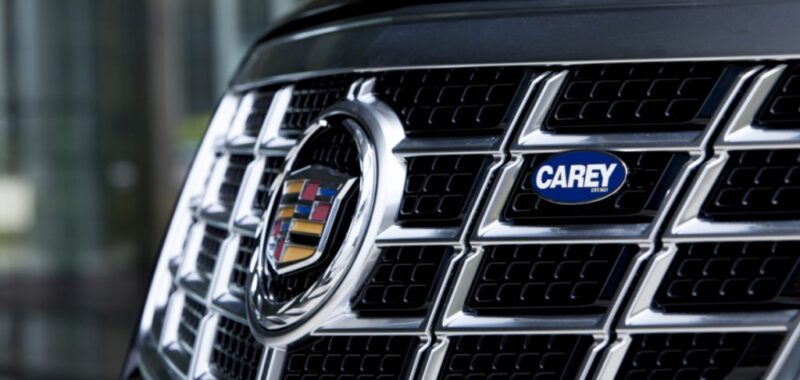Alex Mirza, the new CEO of limo company Carey, is betting that AI can revive a business model squeezed by Uber, Lyft, and the looming threat of self-driving cars.
In his first interview since taking the top job last week, Mirza outlined plans to transform Carey from what had become known as a “brand for just special occasions” into a service for younger customers and everyday executive travel.
The challenge is substantial for Carey, which was taken over by private equity firm The Najafi Companies last September.
Carey operates in about 1,000 cities across 65 countries, serving corporate clients, including Fortune 500 companies and event organizers. But the company has watched ride-sharing services capture a large chunk of the fractured limo market.
New Boss, New Strategy
One of Mirza’s responses centers on AI-powered personalization and what he calls “intelligent luxury.”
“We’re reinventing this company to be relevant to younger people and more people with different use cases,” Mirza said.
Mirza’s strategy draws on his past experiences. He previously founded a recruitment tech service licensed by Fortune 500 companies, was CEO of Cachet Hotels in China, led the hospitality division at Caesars Entertainment, facilitated the $5 billion merger of Ticketmaster with Live Nation, helped with corporate development at Hilton, and led strategic planning at Starwood Hotels.
The Talent Factor
The approach builds on what Mirza describes as Carey’s core strength: driver loyalty and training.
Roughly half of Carey’s base rate goes to drivers, and the company provides full benefits packages.
Mirza said Carey is starting from a strong position. The company’s chauffeurs average a dozen years of tenure, far longer than typical ride-sharing drivers. The new CEO also cited “off-the-charts” net promoter scores, a measure of customer feedback, and high repeat customer rates (though he didn’t share specifics).
“People are scared of human capital and managing it, but that’ll be our bread and butter,” Mirza said.
Mirza sees parallels between Carey’s situation and luxury hotel chains that had to modernize while preserving their premium positioning. Just as the hotel groups have invested heavily in their loyalty programs, Mirza plans to reintroduce one at Carey.
Tech Push
Another objective is investing in Carey’s tech. The new CEO acknowledged that the company is playing catch-up.
In July, the company plans to launch a tech platform that will use algorithms to match customers with specific chauffeurs based on passenger profiles and trip purposes.
Think of it as “the Airbnb superhost concept on steroids,” Mirza said, where customers can see and select their preferred drivers rather than simply booking a car.
The AI initiative extends beyond matching. Carey plans to use algorithms to create “talent tiers” that rank chauffeur performance and tie compensation to those rankings.
The company also wants to deploy “agentic AI” to replicate the service quality of top-performing drivers across its fleet.
Mirza said Carey could appear on ride-sharing apps or travel booking sites, but only use its own vetted drivers and maintain brand control. It already has a small effort with one of the platforms, though he declined to say which one.
Carey’s Strategy Shift
The company’s event business provides a foundation for growth. Carey has handled transportation for the Super Bowl for 16 years and works with the NBA and other major events, creating temporary operations that can manage hundreds of vehicles and drivers.
This event expertise, combined with Carey’s security clearances and vetting processes, positions the company for what Mirza sees as a growing demand for executive protection services in “a world that’s very unstable, unsafe.”
Mirza believes Carey has an opportunity to better market the discretion of its professional drivers: Passengers can feel safe discussing business, for example, and celebrities don’t have to worry about paparazzi getting tipped off.
The broader strategy reflects Carey’s attempt to expand into technology companies, healthcare, and small businesses while maintaining its base among law firms, financial services, and entertainment companies and one-off consumer rentals for weddings and other special occasions.
Daunting Hurdles
Questions remain about execution. The luxury ground transportation market has seen numerous attempts at technology-driven transformation. It may be hard for Carey to navigate between premium positioning and mass market accessibility.
Exhibit A: Blacklane, a chauffeur service app, has built international operations using similar positioning around professional service and reliability.
Last year, Berlin-based Blacklane raised $65 million (â¬60 million) in a series G round of funding, with a potential IPO under discussion. It’s available in more than 200 cities.
Mirza dismissed the comparison: “It’s like the difference between Airbnb and Four Seasons,” he said, implying that Carey is like the luxury hotel brand.
Meanwhile, Teslaâs forthcoming robotaxi launch and Waymo’s increased expansion of its driverless taxis could pressure labor costs. As the lack of combustion engines frees up space, autonomous vehicles may eventually reimagine the amenities and configurations passengers expect.
Mirza emphasized that innovation will come from the bottom up, involving drivers and regional managers rather than corporate consultants.
Mirza offered reassurance to longtime Carey customers, including corporate travel managers and executive assistants who arrange transportation for high-profile clients.
“Discretion and safety are things that we value that are not going to be compromised,” he said. “But we need to bring a higher level of hospitality to it, get better at marketing, and use AI to boost efficiency.

